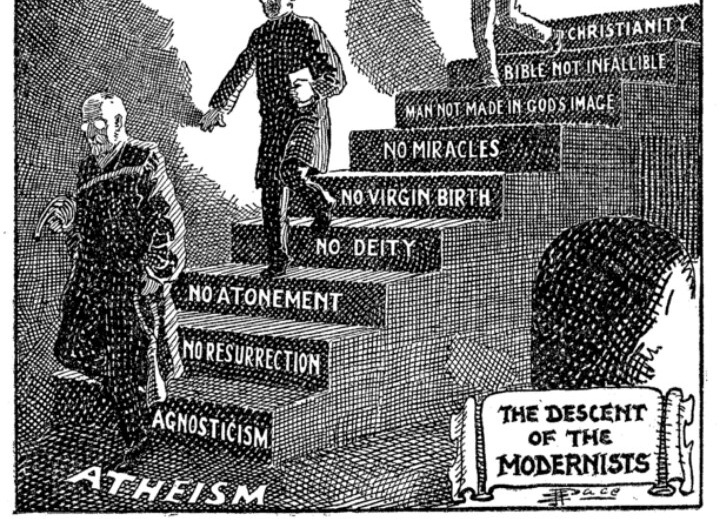Please make plans to join us next week on Thursday, November 16th, 12:00–1:15pm, in the Marty Center Library, for our next workshop meeting.
Presenter: Erin Simmonds (PhD Student, Religions in America)Title: Battling “The Other”: Atheism’s Dual Role in the Evolution Debates of the 1920sAbstract: Fundamentalists welcomed the opportunity to publicly debate atheists about the subjects of God and evolution, knowing full well that atheists were unlikely to ever triumph in the debates. Atheism was too extreme, too marginal, and too unpalatable to have a chance at winning the debates in an intensely religious American context. Thus, in the environment of the Fundamentalist-Modernist controversy, atheism served as a straw man to be easily knocked down by Fundamentalism. At the same time, atheists and Fundamentalists actually agreed that Modernism’s position on religion and science was too accommodating; in a debate between an atheist and a Fundamentalist, the Fundamentalist achieved two ends—they won publicly and spectacularly and they, along with their atheist adversary, characterized Modernism as a weak-kneed, watered-down version of Christianity. Atheism operated both as a threatening, nebulous specter of “the other” and as an intellectual movement that had a voice in the Fundamentalist-Modernist controversy, particularly in the crucial battleground of evolution. This paper intervenes in the historiography of the Fundamentalist-Modernist controversy by bringing to light the ways in which atheism—both the symbol and the movement—was mobilized by Fundamentalists to attack Modernists. Specifically, this paper will focus on one aspect of the controversy, the public debates about evolution that occurred throughout the decade. To demonstrate the ways that atheism was mobilized in the debates, I will analyze the role of atheist leader Charles Smith in the public evolution debates that occurred throughout the 1920s. By comparing Smith’s atheist argument with the Modernist arguments for evolution, this paper will argue that atheism served for fundamentalists in the role of a feared “other” in the debates, to shore up Fundamentalism, and to malign Modernism in the process. Although I intend to take seriously the atheist convictions of Smith and his followers—who had their own reasons for entering the debates—I intend to focus primarily on atheism’s discursive role in the evolution debates.
Clarie Hautot (PhD Student) will respond. Lunch will be served.
The paper can be accessed and downloaded via the “Papers” tab (password protected) on the RAME Workshop website.
Please contact Joel (joelabrown@uchicago.edu) if you any questions or trouble accessing the paper.

